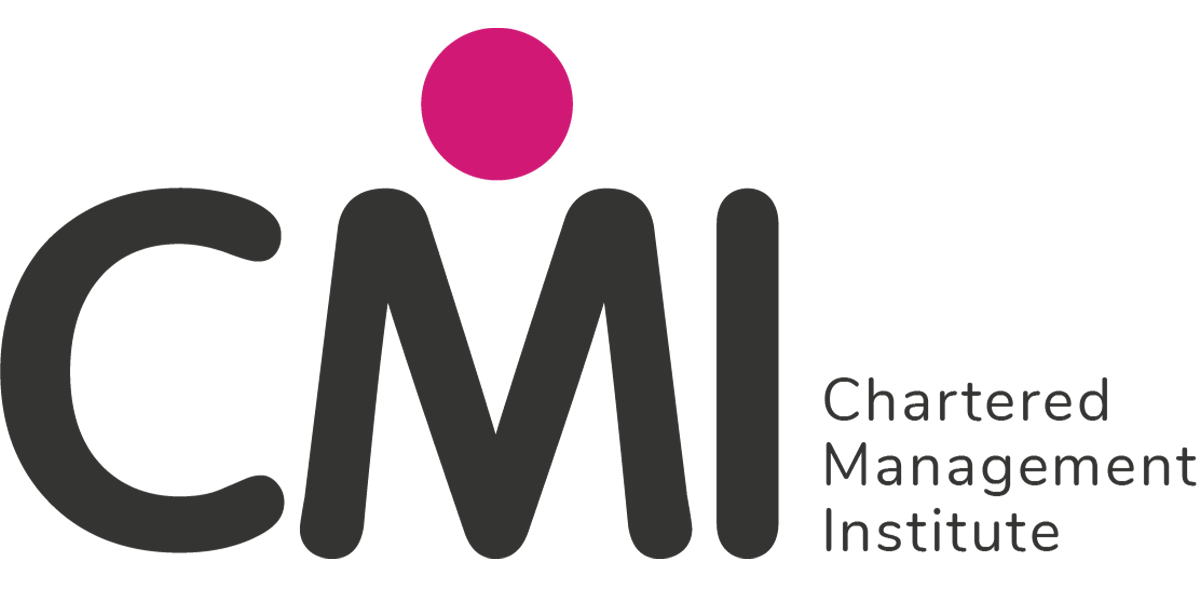
(R3/0414/7/0131 (A10726) 07/31)
The objectives of the Master of Management are to:
- Identify and develop critical success factors of successfully managed excellent organisations
- Integrate your managerial knowledge to manage your organisations more efficiently and effectively
- Develop your analytical and decision-making skills in your professional development.
In the highly competitive business environment, business organisations need people with managerial talents and skills to better manage their organisations more efficiently and effectively.
Managerial competences are prerequisites of successful and excellent organisations today in the knowledge based economy of the information millennium.
The OUM Master of Management programme is designed to provide you with highly commendable managerial skills and competences to enhance your managerial career and professional development.
This programme is recognised by the Chartered Management Institute


Assoc Prof Dr Zorah Abu Kassim
Programme Director
Phone:
+603 – 7081 3945
Email :
zorah_abukassim@oum.edu.my
| Malaysian Learner Fees | |||||||||||||||||||||||
* Fees applicable to Malaysians and Permanent Residents only. * The University reserves the right to revise the fees without prior notice. Discount for the Physically Challenged Learners (OKU) and Senior Citizens The University offers 50% discount for: Note
|
|||||||||||||||||||||||
| International Learner Fees |
|||||||||||||||||||||||
Notes: |
|||||||||||||||||||||||
* The University reserves the right to revise the fees without prior notice.
**LATEST UPDATE: 31 October 2021
| Master’s Project | |
| Subject Name | Credit Hours |
| Master’s Project | 6 |
| TOTAL CREDIT HOURS | 42 |
- What is Master of Management?
A Master in Management gives graduates the opportunity to gain professional skills and knowledge they need to become a successful business leader or a manager.
- Why need a master’s management?
The programme focuses on delivering executive education to professional across the globe, through its distance and blended learning modes of delivery, while ensuring competencies in the field of Business Management.
- What are the entry requirements of MM?
Normal Entry- A Bachelor’s degree (Level 6, MQF) in related fields with a minimum CGPA of 2.50 as accepted by the HEP Senate; OR
- A Bachelor’s degree (Level 6, MQF) in related fields with a minimum CGPA of 2.00 and not meeting CGPA of 2.50 can be accepted, subject to a rigorous internal assessment*; OR
- A Bachelor’s degree (Level 6, MQF) in non-related fields with a minimum CGPA of 2.00 as accepted by the HEP Senate and with relevant working experience, subject to a rigorous internal assessment**; OR
- A Bachelor’s degree (Level 6, MQF) in non-related fields with a minimum CGPA of 2.00 as accepted by the HEP Senate and without relevant working experience, subject to passing pre-requisite courses***; OR
- Other equivalent/related qualifications to a Bachelor’s degree (Level 6, MQF) recognised by the Malaysian Government.
English competency requirements (International student): Achieve a minimum Band 4 in MUET OR equivalent to CEFR (Mid B2) **.
- What would you study in MM?
Human resource management, organisation and business management, information technology for managers, marketing management, organisational behaviour, ethics for managers, organizational development and change, leadership, strategic management, advance corporate communications, international business management, and business research methods.
- What is the duration of study?
2 years or 6 semesters.
- How much are the fees for Malaysian and permanent residents?
RM24,108
- How much are the fees for International students?
Registration fees: RM3,700
Tuition Fees: RM28,938
- What are your career prospects?
Learners may enter careers manager, directorship, MNC executives, CEO, MNC manager, business consultant, business development manager, head of retail and logistic, director of oil and gas and HR manager.
- What is the delivery mode?
The classes are conducted fully online with video lecturer, forums, and virtual face-to-face tutor meeting. The virtual face-to-face tutor meetingis conducted on weekends or evening.
- How many courses should be taken?
12 compulsory courses, and 1 project paper.
- How many courses are there per semester?
3 courses.
- How to grade student performance?
Some courses based on 100% assignment, and some courses 60% assignment + 40% final examination.
- Where can I find out about funding?
For Malaysian, you may withdraw their EPF contributions from Account II to finance their study.
- How do I apply?
Login to www.oum.edu.my and click ‘APPLY NOW’
- What will happen when I’ve sent my application?
Just wait our officer will contact you. - Is the MM MQA Accredited?
Yes, it is MQA accreditation and JPA approved.
- Fees
-
Malaysian Learner Fees Year 1 Year 2 Sem 1 RM5,166 RM5,166 Sem 2 RM5,166 RM1,722 Sem 3 RM5,166 RM1,722 Total RM 24,108 * Fees applicable to Malaysians and Permanent Residents only.
* The University reserves the right to revise the fees without prior notice.
Discount for the Physically Challenged Learners (OKU) and Senior Citizens
The University offers 50% discount for:
1. Senior citizens aged 60 and above on registration date; and
2. Physically challenged learners – a valid Orang Kelainan Upaya (OKU) is required.
The discounts are not valid for second time registration and repeating of subjects.
Learners who receive this discount are not entitled to other discounts and promotions.
Note
Processing fee: RM50
Re-registration fee of RM220 per semester is chargeable for extension of Masters Projects.Financial options: Payment Mode: EPF (Account 2); or JomPAY Education or Personal Loan from commercial banks; or Internet Banking HRDF (subject to employer’s eligibility); or Debit/Credit Card. International Learner Fees
Year 1 Year 2 Sem 1 RM6,201 RM6,201 Sem 2 RM6,201 RM2,067 Sem 3 RM6,201 RM2,067 Total RM28,938 Notes:
1 – Fees applicable to International applicants
2 – The fee above excludes registration fee, processing fee and resource fee. Fee imposed first semester only-non refundable . (Diploma RM2,700; Bachelor RM3,200, Master RM3,700, PhD/Doctorate RM4,200).
3 – Financial method: Telegraphic Transfer , PayPal (Invoice will be prepared in MYR and will be added 6% to cover PayPal transaction fees.)
4 – The fees are for subject fees only and are not applicable for research, registration, repeating of subjects and other fees.
5 – 60% payment of the semester fees must be made before the semester starts, 40% payment before the examination week.* The University reserves the right to revise the fees without prior notice.
**LATEST UPDATE: 31 October 2021 - Entry Requirements
-
- Programme Structure
-
Master’s Project Subject Name Credit Hours Master’s Project 6 TOTAL CREDIT HOURS 42 - FAQs
-
- What is Master of Management?
A Master in Management gives graduates the opportunity to gain professional skills and knowledge they need to become a successful business leader or a manager.
- Why need a master’s management?
The programme focuses on delivering executive education to professional across the globe, through its distance and blended learning modes of delivery, while ensuring competencies in the field of Business Management.
- What are the entry requirements of MM?
Normal Entry- A Bachelor’s degree (Level 6, MQF) in related fields with a minimum CGPA of 2.50 as accepted by the HEP Senate; OR
- A Bachelor’s degree (Level 6, MQF) in related fields with a minimum CGPA of 2.00 and not meeting CGPA of 2.50 can be accepted, subject to a rigorous internal assessment*; OR
- A Bachelor’s degree (Level 6, MQF) in non-related fields with a minimum CGPA of 2.00 as accepted by the HEP Senate and with relevant working experience, subject to a rigorous internal assessment**; OR
- A Bachelor’s degree (Level 6, MQF) in non-related fields with a minimum CGPA of 2.00 as accepted by the HEP Senate and without relevant working experience, subject to passing pre-requisite courses***; OR
- Other equivalent/related qualifications to a Bachelor’s degree (Level 6, MQF) recognised by the Malaysian Government.
English competency requirements (International student): Achieve a minimum Band 4 in MUET OR equivalent to CEFR (Mid B2) **.
- What would you study in MM?
Human resource management, organisation and business management, information technology for managers, marketing management, organisational behaviour, ethics for managers, organizational development and change, leadership, strategic management, advance corporate communications, international business management, and business research methods.
- What is the duration of study?
2 years or 6 semesters.
- How much are the fees for Malaysian and permanent residents?
RM24,108
- How much are the fees for International students?
Registration fees: RM3,700
Tuition Fees: RM28,938
- What are your career prospects?
Learners may enter careers manager, directorship, MNC executives, CEO, MNC manager, business consultant, business development manager, head of retail and logistic, director of oil and gas and HR manager.
- What is the delivery mode?
The classes are conducted fully online with video lecturer, forums, and virtual face-to-face tutor meeting. The virtual face-to-face tutor meetingis conducted on weekends or evening.
- How many courses should be taken?
12 compulsory courses, and 1 project paper.
- How many courses are there per semester?
3 courses.
- How to grade student performance?
Some courses based on 100% assignment, and some courses 60% assignment + 40% final examination.
- Where can I find out about funding?
For Malaysian, you may withdraw their EPF contributions from Account II to finance their study.
- How do I apply?
Login to www.oum.edu.my and click ‘APPLY NOW’
- What will happen when I’ve sent my application?
Just wait our officer will contact you. - Is the MM MQA Accredited?
Yes, it is MQA accreditation and JPA approved.
- What is Master of Management?
